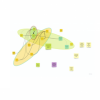Smartness is not fully defined on a local, national, or international level (Cavada et al., 2014).
Cities that are called ‘smart’ follow a process which brought forward the capabilities of their context and the potential benefits of those who live, work, and play within it (Cavada, 2019).
With this in mind, Smart City Lancaster is a pilot project that aims to understand and explore the opportunities for smartness. Led by Marianna along with a team of researchers, in the context of Urban Design Policy, and a research team along with representation from Lancaster City Council and Lancashire County Council, have met since early September to discuss these issues.
The project aims at the end of this year to develop and suggest a vision for Smart City Lancaster, in support of the council’s digital strategy “which sets out a roadmap to becoming a clean, green and healthy district through the use of technology”. The project contains mapping of current actions in urban policy and proposals for the vision for the Smart City Lancaster documented in a report to be disseminated in December 2020.
Please visit this blog again for team and project updates!
Cavada M (2019) Smart Model Assessment Resilient Tool (SMART) A tool for assessing truly smart cities. University of Birmingham. Ph.D. EThOS.
Cavada M; Rogers C; Hunt D. (2014) ‘Smart Cities: Contradicting definitions and unclear measures’ Forum, 1–30 November 2014; Sciforum Electronic Conference Series, Vol. 4, 2015 , f004; doi:10.3390/wsf-4-f004.

